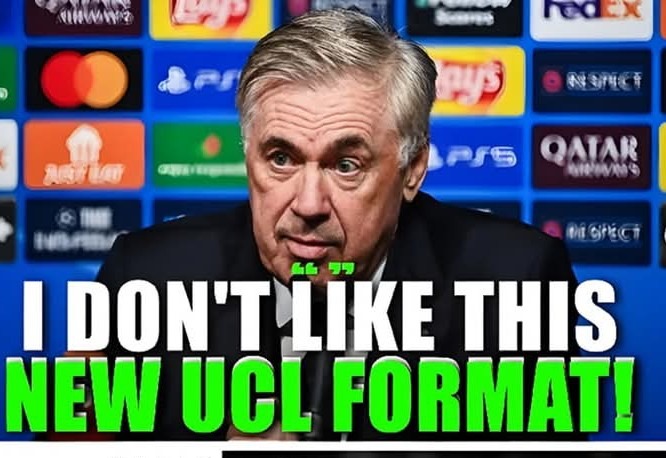Real Madrid's UCL Challenge: Knockout Play-Offs Await
Real Madrid, the reigning UEFA Champions League winners, finished 11th and face knockout play-offs in the new competition format. Can they defend their title amidst these unexpected challenges? Explore the implications of the new Champions League changes on Europe's top clubs.
2/1/20252 min read


Real Madrid Fail to Finish in the UCL Top 8 – Are the New Champions League Changes Fair?
The reigning UEFA Champions League winners, Real Madrid, have failed to secure a top-8 finish in the new-look competition and will now have to compete in the Knockout Play-offs to keep their European campaign alive.
This marks a significant shift in how the Champions League operates, with the new format creating unexpected challenges—even for Europe’s biggest clubs. Despite being one of the tournament’s favorites, Real Madrid finished 11th in the 36-team standings, below teams such as LOSC Lille, Aston Villa, Atalanta, and Bayer Leverkusen.
Carlo Ancelotti Frustrated by the New UCL Format
Manager Carlo Ancelotti has openly criticized the new system, which replaces the traditional group stage with a single-league format.
🗣️ Ancelotti:
"I don’t like this new UCL format. There are too many games. They should reduce the number of games to avoid so much wear and tear."
Like His frustration is understandable. The increased number of matches means top clubs face a greater risk of injuries, fatigue, and fixture congestion—especially considering their domestic league and cup commitments.
What Happened to Real Madrid?
Real Madrid struggled to dominate as they usually do. In a system where only the top 8 teams qualify directly for the Round of 16, even a few bad performances can push a club into the Knockout Play-offs.
Now, Los Blancos must play an extra two-legged tie just to reach the last 16. Their possible opponents? Manchester City or Celtic—two teams that will pose very different challenges.
🗣️ Ancelotti on facing Man City or Celtic:
"Whoever we face, it’s fine. If we get Man City, it will be hard for us, but also hard for them."
Real Madrid’s path to defending their title just became significantly tougher.
What Is the New UCL Format?
UEFA introduced a new Champions League format starting this season, replacing the traditional 8 groups of 4 teams with a single-league system of 36 teams.
How it works:
1️⃣ Each club plays 8 group-stage matches instead of 6 (against different teams, not in fixed groups).
2️⃣ The top 8 teams in the standings qualify directly for the Round of 16.
3️⃣ Teams finishing 9th to 24th must play a two-legged Knockout Play-off to reach the last 16.
4️⃣ The bottom 12 teams are eliminated with no Europa League fallback.
This means even elite teams like Real Madrid aren’t guaranteed an easy path forward.
Is the New UCL Format Good or Bad?
The system is designed to increase competition and revenue, but many fans and coaches aren’t convinced it’s an improvement.
✅ Pros:
More high-stakes matches early in the tournament.
No more "easy groups" where big clubs cruise to qualification.
Higher revenue for UEFA and clubs.
❌ Cons:
Fixture congestion—more games add to player fatigue and injuries.
The traditional group-stage drama is lost.
Top clubs like Real Madrid face a greater risk of early elimination.
What Happens Next?
Real Madrid’s Knockout Play-off tie will be crucial. If they beat Manchester City or Celtic, they move on to the Round of 16. If they lose, their UCL title defense ends early—a shocking scenario for the 14-time winners.
As debates over the new UCL format continue, one thing is certain: this tournament is now more unpredictable than ever.
💭 What do you think? Should UEFA stick with this format, or was the old system better?
